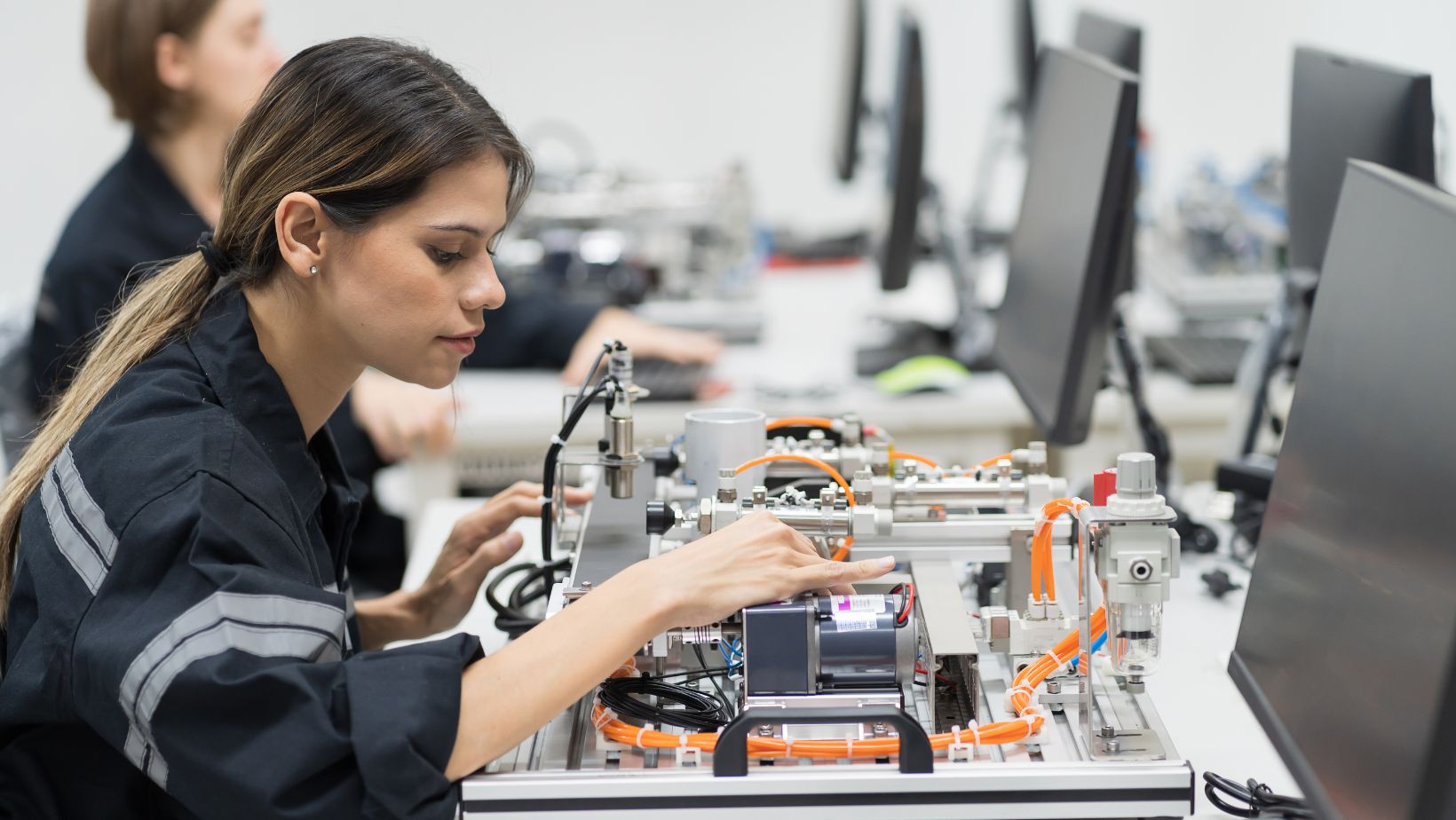Key Takeaways
- Hands-on Experience: Robotics internships provide essential practical experience that allows participants to apply theoretical knowledge to real-world scenarios across various sectors.
- Skill Development: Interns enhance their technical skills in programming languages (C++, Python, ROS), robotic system design, and soft skills such as problem-solving and project management.
- Networking Opportunities: Internships create avenues for interns to connect with industry professionals, potentially leading to job offers and future collaborations.
- Types of Internships: Understanding the distinction between research internships and industry internships helps candidates choose the right opportunity for their career goals.
- Preparation Strategies: A strong resume, interview preparation, and researching companies are crucial for securing coveted robotics internships.
- Challenges to Navigate: Interns may face technical complexities, skill gaps, time management issues, and integration challenges, which are important to address for successful career development.
In today’s tech-driven world, robotics internships offer a gateway to exciting career opportunities. As industries increasingly integrate automation and artificial intelligence, the demand for skilled professionals in robotics is skyrocketing. These internships not only provide hands-on experience but also allow students and recent graduates to apply their theoretical knowledge in real-world settings.
Participating in a robotics internship can significantly enhance one’s skill set, making candidates more competitive in the job market. From programming and design to troubleshooting and project management, these experiences equip individuals with the tools they need to thrive in a rapidly evolving field. With the right internship, aspiring roboticists can pave the way for a successful future in a cutting-edge industry.
Robotics Internships
Robotics internships offer crucial hands-on experience in the rapidly evolving field of robotics. Internships promote the application of theoretical knowledge in real-world scenarios. These opportunities are available across various sectors, including manufacturing, healthcare, and research.
Internship participants engage in diverse projects. Responsibilities often include programming robots, designing systems, conducting tests, and troubleshooting issues. Interns gain insights into industry standards and practices while collaborating with experienced professionals.
Robotics internships also enhance essential skills. Competencies in programming languages like C++, Python, and ROS develop through practical applications. Interns improve their problem-solving abilities while managing complex projects, often under tight deadlines.
Networking opportunities abound in robotics internships. Interns connect with professionals, industry leaders, and fellow students, building relationships that may lead to future job placements. Many companies prioritize hiring former interns, recognizing their familiarity with company operations and culture.
Overall, robotics internships play a vital role in career development for aspiring robotics professionals, equipping them with the necessary tools to excel in this competitive field.
Benefits Of Robotics Internships

Robotics internships offer numerous advantages that significantly impact career growth and professional development. They provide essential experience and skills that prepare individuals for success in the robotics field.
Skill Development
Skill development occurs through hands-on experience in real-world settings. Interns gain expertise in various programming languages, including C++, Python, and ROS, enhancing their technical proficiency. Interns also learn about robotic system design, testing methodologies, and maintenance protocols. Furthermore, they develop critical soft skills such as problem-solving, teamwork, and project management. Engaging in diverse projects across sectors strengthens their competencies, making them more attractive to future employers.
Networking Opportunities
Networking opportunities arise naturally during robotics internships. Interns connect with industry professionals and mentors, fostering relationships that can lead to future job offers. Companies often value the unique perspectives and fresh ideas interns bring, integrating them into teams. Events such as workshops, seminars, and group projects create additional chances to meet experts in the field. Networking not only enhances knowledge but also opens doors to potential collaborations and job placements in the robotic technology sector.
Types Of Robotics Internships
Robotics internships typically fall into two categories: research internships and industry internships. Each type offers unique experiences and skill-building opportunities.
Research Internships
Research internships focus on advancing knowledge in robotics through experimentation and innovation. Participants often work within university labs or research institutions, contributing to ongoing projects that explore new technologies or methodologies. Interns may engage with tasks such as:
- Developing algorithms for robot navigation.
- Conducting experiments to test robotic designs and functionalities.
- Analyzing data gathered from robotics experiments.
- Collaborating with researchers to publish findings.
These internships enhance interns’ analytical skills and deepen their understanding of theoretical concepts, positioning them for future academic or research-oriented careers.
Industry Internships
Industry internships provide practical experience in corporate settings, where interns apply their skills in real-world environments. These opportunities occur in sectors like manufacturing, healthcare, and automation. Interns typically perform tasks such as:
- Programming robotic systems for production lines.
- Designing user interfaces for robot operation.
- Testing and troubleshooting robotic systems in commercial applications.
- Collaborating with cross-functional teams to develop solutions.
Through these experiences, interns gain direct exposure to industry standards and practices, improving their employability and readiness for careers in the robotics field.
How To Secure A Robotics Internship

Securing a robotics internship requires strategic planning and preparation. Focus on building a solid foundation through a strong resume and effective interview techniques.
Building A Strong Resume
Building a strong resume highlights relevant skills and experiences effectively. Prioritize key sections such as:
- Contact Information: Include name, phone number, email, and LinkedIn profile.
- Objective Statement: Write a concise statement that outlines career goals and interest in robotics.
- Education: List degree programs, relevant coursework, and academic achievements.
- Technical Skills: Detail programming languages like C++, Python, and ROS, along with tools and software proficiency.
- Experience: Emphasize internships, projects, or extracurricular activities related to robotics, showcasing specific contributions and outcomes.
- Certifications: Include any certifications relevant to robotics, such as robotics programming or system design.
Tailor each resume for individual applications, focusing on the skills and experiences that align with specific internship positions.
Preparing For Interviews
Preparing for interviews enhances chances of standing out. Consider the following steps:
- Research the Company: Understand the company’s projects, technologies, and culture.
- Review Common Questions: Familiarize with common interview questions for robotics positions, such as those related to technical skills and problem-solving approaches.
- Practice Technical Skills: Engage in mock interviews that include technical assessments and coding challenges.
- Prepare Questions: Develop insightful questions to ask during the interview, showcasing interest and knowledge of the field.
- Dress Professionally: Ensure a professional appearance, reflecting the company culture and values.
Being well-prepared conveys confidence and demonstrates genuine interest in the internship opportunity.
Challenges Faced In Robotics Internships
Interns in robotics often encounter several challenges that can affect their overall experience and learning outcomes.
- Technical Complexity
Interns deal with advanced technologies and sophisticated systems. Understanding intricate robotic platforms requires a solid foundation in programming and engineering principles.
- Skill Gaps
Interns may lack practical experience with specific tools and software. Bridging the gap between theoretical knowledge and practical applications can be daunting, especially when facing demanding tasks.
- Time Management
Interns juggle multiple responsibilities, from project deadlines to learning new skills. Balancing workload with the desire to learn can create stress and impact performance.
- Limited Guidance
Some internships provide minimal supervision. The lack of mentorship can result in uncertainty and hinder professional growth, as interns may struggle to navigate complex projects without adequate support.
- Communication Barriers
Interns often work in diverse teams with varying expertise and backgrounds. Miscommunication can occur, leading to misunderstandings and inefficiencies in project collaboration.
- Integration into Company Culture
Adapting to the workplace environment poses challenges for interns. Navigating office dynamics and understanding corporate expectations require adaptability and social awareness.
- High Expectations
Companies expect interns to contribute meaningfully to projects. Meeting these expectations can lead to pressure, especially for those new to the field.
- Project Scope
Interns face projects that may change unexpectedly. Adapting to evolving objectives can be difficult, demanding flexibility and quick problem-solving skills.
Navigating these challenges is vital for interns’ success in shaping their careers in the robotics industry.
Gaining Hands-on-experience in Robotics
Robotics internships are essential stepping stones for anyone looking to thrive in the fast-evolving tech landscape. They not only provide hands-on experience but also foster valuable connections within the industry. By engaging in real-world projects, interns develop both technical and soft skills that enhance their employability.
Navigating the challenges that come with these internships prepares individuals for successful careers in robotics. With the right preparation and mindset, aspiring professionals can leverage these experiences to secure rewarding positions in a field that’s only set to grow. Embracing the opportunities that come with robotics internships can lead to a bright future in technology and innovation.

